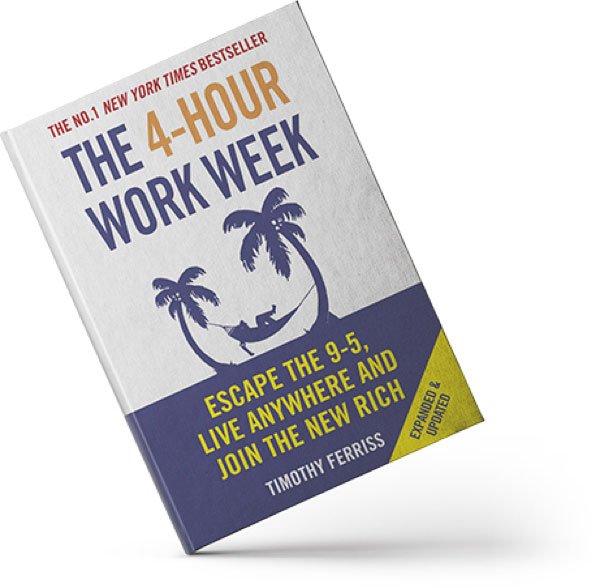If you’re a key shareholder in a professional services firm – whether in law, accountancy, consultancy, or another partner-led business – there’s a good chance your tax affairs are more complex than most. And if you’re preparing for a sale, welcoming private equity investment, or simply planning for retirement or succession, that complexity only grows.
At Cooper Parry, we understand.
We’re a professional services firm ourselves. We’ve experienced rapid growth and navigated the journey of private equity investment. So, when we talk about personal tax planning, we’re not just offering generic advice – we’re sharing insights grounded in real experience.
This article breaks down the essential personal tax planning strategies every shareholder in a professional services firm should consider. It’s written in plain English, free from unnecessary jargon. Whether you’re just starting to plan or already deep into the process, these are the key considerations to keep front of mind.
LET’S START WITH REMUNERATION PLANNING
If you’re still operating under the old “low salary, high dividend” approach, it might be time for a rethink.
It’s not just about extraction in the here and now. It’s about what makes sense for you long term.
Dividend tax has gone up. The dividend allowance has shrunk. Salary comes with National Insurance, but it also gives you pension access, better mortgage affordability, and other benefits.
The most tax-efficient structure now? A blended approach may now be more tax-efficient and financially stable – and this will vary depending on your income, ownership structure, and future plans.
We’re seeing a lot of our clients benefit from revisiting their strategy here and realigning it with today’s tax rules.
PENSION PLANNING: DON’T MISS YOUR CHANCE TO TOP UP
Pensions might not feel urgent, but if you’re a shareholder drawing profits from a business, they remain one of the most efficient ways to extract value.
You can:
- Use your company to make pension contributions (which are deductible and avoid NICs)
- Maximise your annual allowance
- Explore salary sacrifice to increase contributions in a tax-friendly way
For higher earners, the tapered annual allowance can be a bit of a trap, but it can be managed if you plan properly. We’ve helped clients build pension strategies that build long-term wealth while reducing their tax bill right now.
MAKING THE MOST OF ISAS, SEIS, EIS & VCTS
As your business grows, you’ll probably want to diversify your personal wealth outside of it. Tax-efficient investments are a great way to do that.
You’ve got:
- ISAs – tax-free income and gains
- EIS & SEIS – upfront income tax relief, CGT deferral, and more
- VCTs – 30% income tax relief and tax-free dividends
These are brilliant tools when used strategically. Many of our own shareholders have used them to balance risk and build personal wealth beyond the firm.
THINKING OF SELLING OR TAKING ON PE? CAPITAL GAINS TAX PLANNING IS KEY
We know how it feels to get to the point of a potential sale or PE deal.
Exciting. Emotional. And a bit of a blur.
But here’s the deal: Capital Gains Tax (CGT) can make a big dent in what you walk away with, unless you plan ahead.
You might be eligible for Business Asset Disposal Relief (BADR), and missing the criteria can be costly. The current BADR CGT rate is 14% on gains up to a lifetime £1 million limit. But from 2026 this is due to rise to 18%. Think ownership timelines, voting rights, and how involved you are in the day-to-day.
If there’s any kind of deferred or earn-out consideration, things get more complex. It’s crucial to understand when and how tax gets triggered, especially if you’re being paid in stages, shares, or through performance-linked payments.
INHERITANCE TAX: THE SLEEPER ISSUE YOU CAN’T IGNORE
Nobody loves thinking about Inheritance Tax (IHT), but if you’re a key shareholder with serious business value in your name, you can’t afford not to.
The earlier you start thinking about how to pass wealth on, the more options you’ll have. For example:
- If you own property within the business and plan to sell, think about splitting that out in advance
- Business Property Relief (BPR) can wipe out Inheritance Tax on qualifying shares, if you meet the criteria. But heads up: from 6 April 2026, the 100% relief will be capped at £1 million, with anything above that only getting 50% relief. And remember, it may no longer apply once you’ve sold the business.
- Gifting shares now, while they qualify for reliefs, can lock in protection
And remember – after a sale, you may just be sitting on cash. That’s exposed to full IHT unless you’ve planned.
TRUSTS & FAMILY INVESTMENT COMPANIES (FICS): POWERFUL TOOLS WHEN DONE RIGHT
For those thinking about succession or intergenerational planning, trusts and FICs are incredibly useful. But they only work if you start early.
Set up a trust with business shares now, and you might be able to avoid CGT and IHT entirely thanks to reliefs like BPR. But do it after a sale, and you’re out of luck.
You could also explore setting up a FIC. By moving growth assets inside a FIC, you’re moving future value out of your personal estate and into a tax-efficient structure whilst keeping overall control. A FIC which holds shares and meets certain conditions could get the Substantial Shareholding Exemption (SSE), meaning no chargeable gain for corporation tax on eventual sale of the original shares. Keeping more of your wealth for your family’s future.
Timing is everything here. Get advice early and structure it properly.
TAX AND PRIVATE EQUITY: KNOW WHAT YOU’RE GETTING INTO
If you’re welcoming private equity investors into your business, you’ll need to get to grips with the personal tax implications.
From ratchets and growth shares to earn-outs and loan notes, there are plenty of structures out there, each with their own quirks and risks. These deals can be great for value creation, but you need to understand how they affect your tax position now and in future.
We’ve been through PE investment ourselves, and we help clients prepare for every twist and turn, with the benefit of that lived experience.
TIMING YOUR MOVES: DON’T MISS THE WINDOW
Whether it’s gifting shares, extracting profits, or setting up a trust, the calendar matters. Some reliefs are based on minimum holding periods. Others disappear after a sale. And some decisions, like crossing the £100,000 income threshold – can cause unexpected losses, like losing access to childcare support.
Planning doesn’t mean doing everything now. But it does mean knowing what needs doing when, so you don’t lose out down the line.
COMMON PITFALLS WE SEE (AND HOW TO AVOID THEM)
- Missing BADR eligibility by not holding shares long enough or lacking voting rights
- Leaving it too late to gift shares, set up trusts, or separate business property
- Not preparing for PE earn-out tax on the wrong side of the deal
- Thinking inheritance planning is for later – when you’ll lose access to valuable reliefs
LET’S TALK ABOUT YOU
As key shareholders, your personal tax position is tied closely to your business decisions. That means planning shouldn’t be an afterthought – it should run in parallel with your firm’s growth and future strategy.
We’re not just advisors. We’re shareholders too. We’ve sold. We’ve structured.
We’ve navigated the tax system from both sides. And we’d love to help you do the same with confidence.
Get in touch with our Private Tax team today if you’re thinking about a sale, a succession plan, or just want to get ahead. The earlier we talk, the more we can do.























